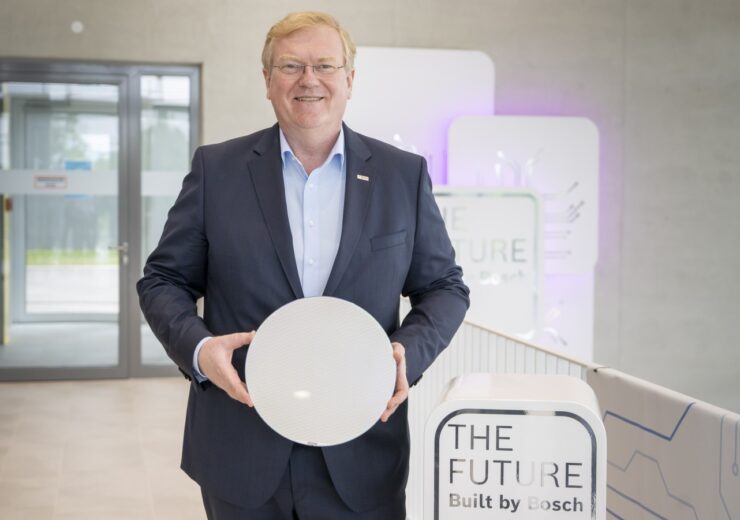For financing the investment, the German engineering and technology company will seek funding from the European Union under the IPCEI framework on microelectronics and communications technology, said the group’s board of management chairman Stefan Hartung at the Bosch Tech Day 2022

Bosch board of management chairman Stefan Hartung at the Bosch Tech Day 2022. (Credit: Robert Bosch GmbH)
Robert Bosch has announced plans to invest another €3bn through 2026 in the group’s semiconductor technology and the systems based on it.
For financing the investment, Bosch will seek funding from the European Union under the Important Projects of Common European Interest (IPCEI) framework on microelectronics and communications technology.
At the Bosch Tech Day 2022, Bosch board of management chairman Stefan Hartung said: “Microelectronics is the future and is vital to the success of all areas of Bosch business. With it, we hold a master key to tomorrow’s mobility, the internet of things, and to what we at Bosch call technology that is ‘Invented for life’.”
The German engineering and technology company will use over €170m towards the construction of two new chip development centres located in Reutlingen and Dresden in Germany.
Additionally, the group will allocate €250m in 2023 for creating an extra 3,000m2 of clean-room space at its Dresden wafer fab.
Hartung said that how the remaining funds of the €3bn investment will be spent is yet to be determined.
Bosch plans to manufacture its microelectromechanical systems (MEMS) sensors on 300mm wafers in Dresden. Production of these is slated to begin in 2026.
The group revealed that it is also working on further modifying its MEMS sensors, particularly for the consumer goods industry
Bosch said that the new investment in microelectronics also gives scope to new areas of innovation. These include systems-on-a-chip, such as the radar sensors used by vehicles for undertaking 360 degree scans of the surroundings during the automated driving mode.
The German group plans to improve such components, make them smaller, smarter, as well as cheaper to produce.
Bosch stated that it has been producing silicon carbide (SiC) chips at a mass scale since late 2021 at its Reutlingen fab. The silicon carbide chips are used in the power electronics that are needed for electric and hybrid vehicles.
In an effort to make the power electronics more affordable as well as more efficient, the group is said to be studying the use of other types of chips such as those based on gallium nitride for electromobility applications.


